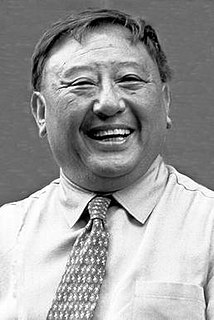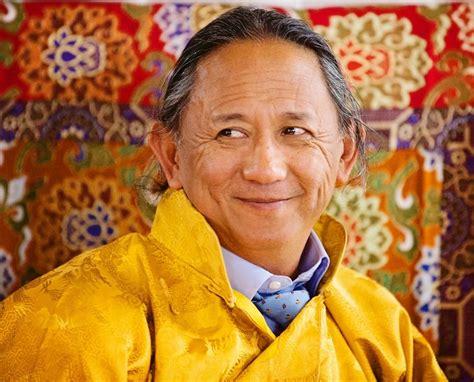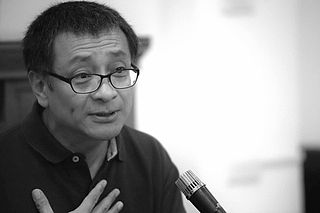A Quote by Gelek Rimpoche
If we only practice compassion on the mind level, we run a great risk of our compassion being just talk. As we know, talk is cheap. To develop true compassion we have to put our money where our mouth is.
Related Quotes
Our compassion is the fruit of our spiritual lives; it actually arises spontaneously when formed by intention in our spiritual practice. Love and compassion are always the goods of the spiritual journey, and they are guided by divine wisdom, which then shapes compassion in the concrete situations of our existence.
Sometimes people feel disappointed when they hear about practicing compassion: "You mean I have to be nice?" It's kind of a letdown. We often overlook compassion, seeing it as merely a pit stop on the way to more advanced practices. We want something more; we don't even know what. But that's just a trick of our mind. One of the greatest teachings is to practice compassion.
Compassion arises naturally as the quivering of the heart in the face of pain, ours and another's. True compassion is not limited by the separateness of pity, nor by the fear of being overwhelmed. When we come to rest in the great heart of compassion, we discover a capacity to bear witness to, suffer with, and hold dear with our own vulnerable heart the sorrows and beauties of the world.
When we endure our own tragedies or trials, most of us develop some empathy and compassion for others who are suffering. The trick is to keep that sense of compassion going throughout our daily lives, when we are likely to go on automatic pilot and move back into being judgmental, especially when times are tough.
Common sense! It's nothing more than common sense for the preservation of our culture, the preservation of our country, the preservation and growth of our economy. And yet Jim Acosta and Glenn Thrush - and everybody in the press corps and practically every other Democrat - hears this and the only reaction they have is, "No compassion! No compassion for the less fortunate! No compassion for the victims of the world!"
In contrast, compassion manifests in us as the offering of kindness rather than withdrawal. Because compassion is a state of mind that is itself open, abundant and inclusive, it allows us to meet pain more directly. With direct seeing, we know that we are not alone in our suffering and that no one need feel alone when in pain. Seeing our oneness is the beginning of compassion, and it allows us to reach beyond aversion and separation.
Compassion and mercy are important, period. It doesn't matter who's at our receiving end, but we need to be flexing those muscles. It's not mutually exclusive: If you have compassion for children starving in Africa, it doesn't mean you can't have compassion for adults in Africa or animals that are being tortured and abused.
The nectar of compassion is so wonderful. If you are committed to keeping it alive, then you are protected. What the other person says will not touch off the anger and irritation in you, because compassion is the real antidote to anger. Nothing can heal anger except compassion. That is why the practice of compassion is a very wonderful practice.
Education is the proper way to promote compassion and tolerance in society. Compassion and peace of mind bring a sense of confidence that reduce stress and anxiety, whereas anger and hatred come from frustration and undermine our sense of trust. Because of ignorance, many of our problems are our own creation. Education, however, is the instrument that increases our ability to employ our own intelligence.




























